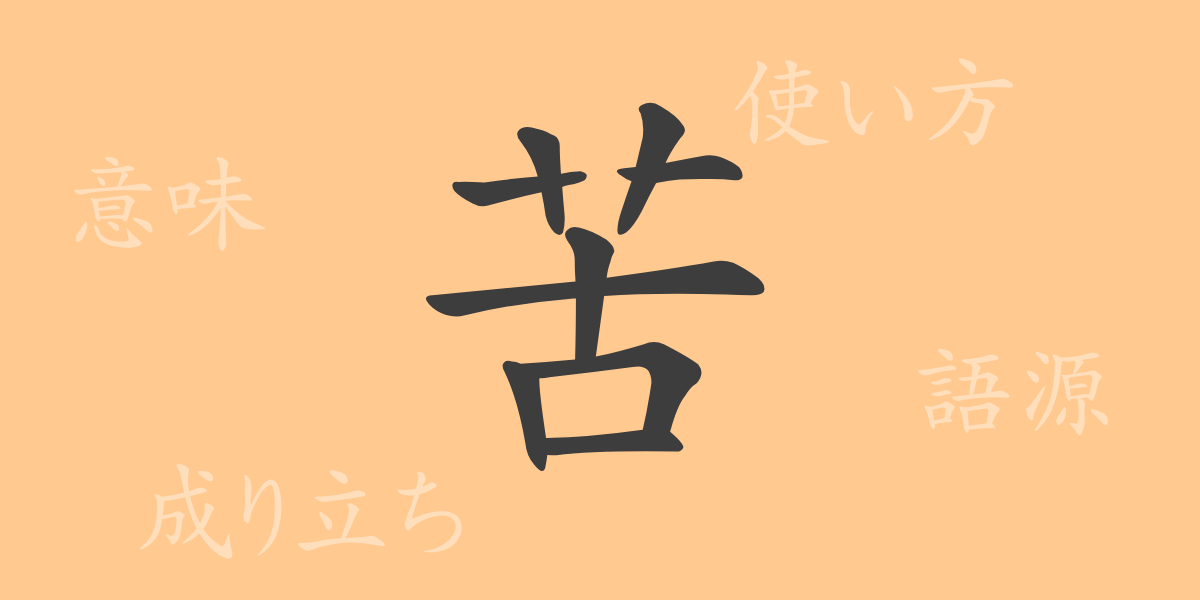In the rich expressive world of the Japanese language, many kanji reflect emotions and situations vividly. Among them, “苦(く)” holds a particularly profound meaning, used in various contexts deeply rooted in Japanese life and culture. This article will uncover the full scope of the kanji “苦(く),” from its origins to its modern-day usage.
Origin of 苦(く) (Etymology)
The kanji “苦(く)” evolved from ancient Chinese characters symbolizing a plant with a bitter taste. The original form depicted an open mouth eating something bitter and a heart enduring the bitterness. The meanings of “suffering” and “difficulty” associated with this kanji reflect the human reaction and psychological state when experiencing bitterness.
Meaning and Usage of 苦(く)
The kanji “苦(く)” is primarily used to describe states of physical or mental discomfort, such as “苦しい(くるしい)” (painful), “苦痛(くつう)” (pain), and “苦労(くろう)” (hardship). It is also used to describe taste, as in “苦い(にがい)” (bitter), illustrating its versatility in expressing a wide range of sensations from physical discomfort to abstract anguish.
Readings, Stroke Count, and Radical of 苦(く)
Let’s take a closer look at the readings and structure of the kanji “苦(く)”:
- Readings: On’yomi (Chinese reading) – く; Kun’yomi (Japanese reading) – くるしい, にがい
- Stroke count: 8 strokes
- Radical: 艸(くさかんむり), which classifies it among kanji related to plants
Idioms, Phrases, and Proverbs Using 苦(く)
Japanese language is rich with idioms, phrases, and proverbs that include the kanji “苦(く).” Here are a few examples:
- 苦楽を共にする (くらくをともにする) – To share both joys and sorrows together.
- 苦心惨憺 (くしんさんたん) – To suffer greatly and make painstaking efforts.
- 苦節十年 (くせつじゅうねん) – To endure hardships for many years.
- 苦あれば楽あり (くあればらくあり) – After suffering comes happiness.
- 口に苦し (くちににがし) – To experience something unpleasant or bitter.
Conclusion on 苦(く)
The kanji “苦(く)” has long been used to symbolize the inevitable pain and difficulty experienced by humans. Deeply embedded in the Japanese language, it appears in various forms in our daily lives. While everyone faces hardship, overcoming such experiences often leads to new discoveries and growth, a lesson encapsulated by this profound kanji.

























